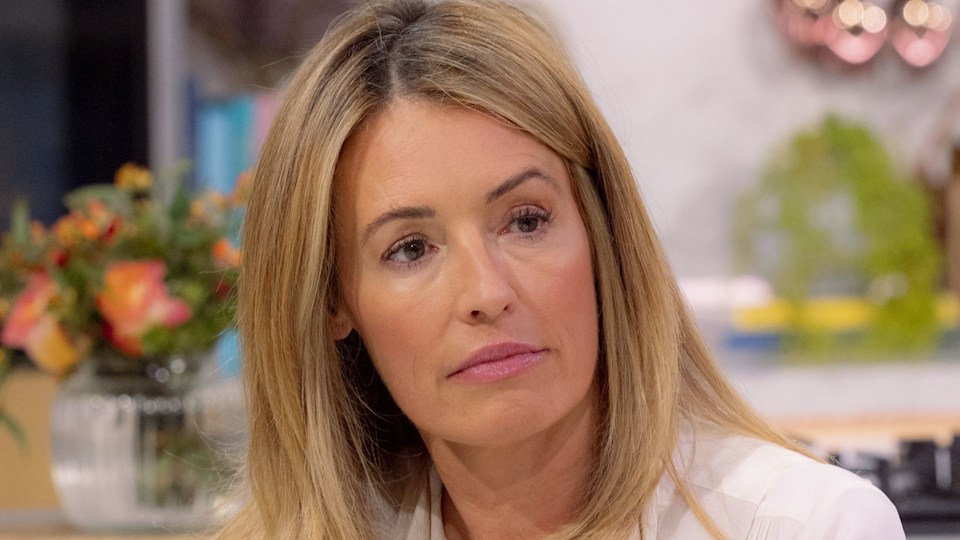Cat Deeley Reveals She Struggled with Postpartum Depression but “Was Too Scared to See a Doctor for Fear of Being Labeled Weak”
In a heartfelt revelation, Cat Deeley, the renowned television presenter and actress, has opened up about her personal battles with postpartum depression. In a candid interview, she shared the struggles she faced after delivering her children, highlighting the emotional turmoil that often accompanies motherhood. Deeley’s bravery in discussing this sensitive topic sheds light on a critical issue that many new mothers face but may feel too ashamed to address.
Cat expressed that her fear of being perceived as “weak” kept her from seeking help when she most needed it. Reflecting on her experiences, she pointed out the societal pressures and stigmas surrounding mental health, particularly for women who have just given birth. Such stigma can often silence those suffering from postpartum depression, leading mothers to feel isolated and unsupported during a time that should be joyful. Deeley’s revelations serve as a reminder that mental health issues are valid and that seeking help is not a sign of weakness, but rather a step towards healing.
The Importance of Open Dialogue About Postpartum Depression
The stigma surrounding postpartum depression (PPD) is a barrier that prevents many women from seeking necessary help. Cat Deeley’s story is one that resonates with many who find themselves caught in a similar predicament. It highlights the importance of open dialogue about mental health issues affecting new mothers. By sharing her experiences, Deeley encourages transparency and empowers other mothers to discuss their feelings without judgment.
Statistics indicate that approximately 1 in 7 women experience postpartum depression, yet many remain silent due to fear of being labeled or misunderstood. Deeley’s candidness creates a platform for discussions that can lead to increased awareness and support. With the right conversations and support systems, families can better understand and assist new mothers who are navigating the challenges of postpartum life.
Breaking the Cycle: Seeking Help and Building Support Systems
One of the most significant takeaways from Cat Deeley’s experience is the necessity of having robust support systems in place. Deeley’s fear prevented her from reaching out to professionals who could provide her the help she needed. This highlights the critical nature of fostering an environment where new mothers feel free to ask for help without fear of judgment.
Support from partners, family, and friends can be instrumental in helping mothers deal with postpartum depression. It is crucial for loved ones to create a safe space for new mothers to express their feelings or seek assistance. Being attentive, compassionate, and understanding can make all the difference in a mother’s journey to mental wellness.
Furthermore, medical professionals play a vital role in addressing postpartum depression. They should actively engage in discussions about mental health with new mothers during routine check-ups. By doing so, they can help reduce the stigma surrounding postpartum mental health issues and encourage women to speak up about their experiences.
Understanding the Symptoms of Postpartum Depression
Recognizing the symptoms of postpartum depression is key to fostering timely interventions and appropriate care. Cat Deeley’s experience represents just one account of how this condition can manifest. Common symptoms include overwhelming feelings of sadness, anxiety, irritability, fatigue, and feelings of inadequacy regarding parenting. Some women may also experience changes in appetite, sleep disturbances, or difficulties bonding with their baby.
Understanding these symptoms can empower partners and family members to recognize when a new mother might be struggling. The earlier the intervention, the quicker a mother can begin to feel supported and regain her footing. Education about postpartum depression should be readily available and emphasized during prenatal care, childbirth education classes, and postpartum follow-ups.
In Deeley’s case, her willingness to share her truth can pave the way for others to identify their struggles and seek help, transforming their journeys into more positive experiences.
Conclusion
Cat Deeley’s brave admission of her struggles with postpartum depression not only raises awareness but also encourages new mothers to address their feelings without fear. By breaking the silence surrounding such issues, we can build a community that supports and uplifts mothers during one of the most challenging yet rewarding phases of life. If you or someone you know is struggling with postpartum depression, reach out for help. Remember, seeking assistance is a vital step towards healing and empowerment.





